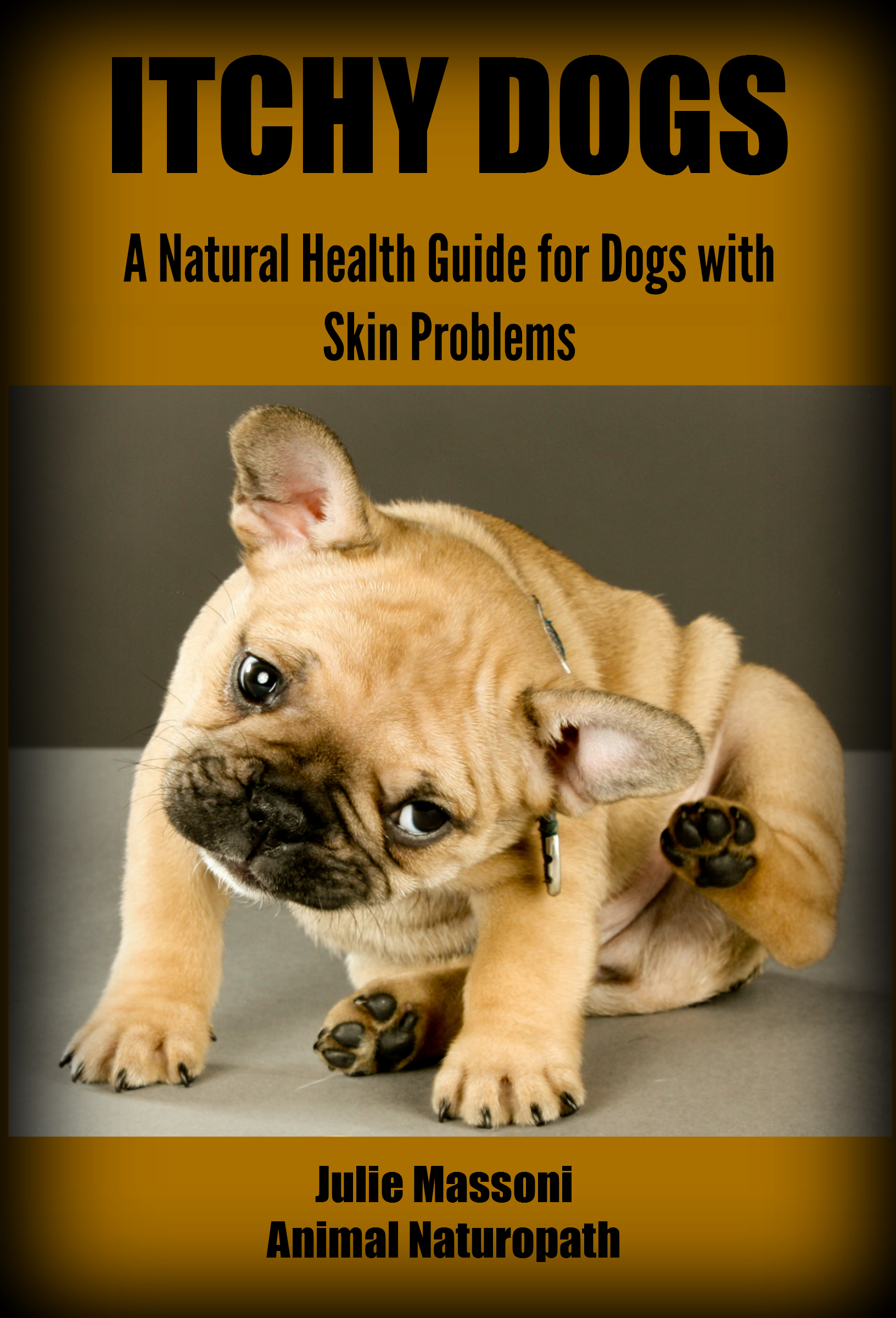
Do you have an itchy dog?
Are you sick of taking your dog to the vet for medications that only give temporary relief?
Have you thought about the long-term health effects that drugs may have on your beloved pooch?
Well, this book will show you step-by-step how to help your itchy dog... the way nature intended. No chemicals... No drugs... and without spending a fortune.
You will find information on the common conditions that cause itching - from allergies and mange to yeast infections... and everything in-between.
Learn about safe and natural alternatives to drugs, natural flea control and the benefits of using herbs, homeopathic remedies, flower essences and nutritional supplements in conjunction with a healthy diet, to help your dog overcome the dreaded ‘itch’.
During the last 20 years as an animal naturopath, I have seen and helped so many dogs with skin problems simply by using the natural methods outlined in this book. I hope that by reading my book that you can help your dog too.
There is always an underlying reason why an animal is suffering from an allergy. It is more likely to occur in animals with a compromised immune system or those suffering from liver overload or toxicity. In a healthy animal the immune system should react to bacteria and viruses by producing antibodies to mount an immune response. If your dog has an allergy, then its immune system becomes over-active when exposed to the ‘allergic substance’ and will react as if it is a foreign invader. Dogs with allergies generally present with excessive scratching and/or licking paws. They may have dry and flaky skin, dull or greasy coat, redness, hot or cold skin, raised lumps, pimples, rash, scabby sores, dandruff, fur loss, hot spots, eczema or smelly coat. Others may show no skin lesions at all and have a perfectly healthy-looking coat but just scratch or lick constantly. Allergic animals may react to anything from fleas, grasses, weeds, shampoos, chemicals, chlorinated water, preservatives and commonly fed foods.
Symptoms often include: Itching mostly when resting or bored and may cease during activity
Licking paws, Recurring ear infections, Overactive immune system
The naturopathic approach to allergies is to determine what the animal is allergic to, and more importantly, why the animal has developed an allergy.
Allergies can be divided into two categories ~ environmental and food.
Environmental allergies can include pollens, dust, dust mites, chemicals, moulds, aerosol sprays, cleaning chemicals, paint, shampoo, bedding materials, carpets, plastic food and water bowls, cigarette smoke, grasses, ragwort, wandering jew and other plants, chemicals in water, flea products and fleas.
Symptoms often include: Itchy skin, Watery eyes, Respiratory symptoms, Red ears, face, paws, belly or genitalia
Food allergies are more likely to develop when animals are fed the same foods day in and day out.
| Language | Status |
|---|---|
|
French
|
Already translated.
Translated by Chris S.
|
|
|
Author review: Great to work with you, thanks |
|
German
|
Already translated.
Translated by Sabine Hussek
|
|
|
Author review: Thank you so much. Great communication and a pleasure to work with you. |
|
Greek
|
Already translated.
Translated by Stefanos Karampalis
|
|
|
Author review: Very easy to communicate with and translation completed fast. Thank you! |
|
Hindi
|
Already translated.
Translated by Deb Dutta
|
|
|
Author review: Great work and super fast translation. Thank you so much! |
|
Italian
|
Already translated.
Translated by Laura Albini
|
|
|
Author review: Very happy with translation and great communication. Would highly recommend Laura for Italian translations. A pleasure to work with you, thanks! |
|
Portuguese
|
Already translated.
Translated by Gilberto Castro
|
|
|
Author review: Thank you |
|
Spanish
|
Already translated.
Translated by Manya Goel
|
|
|
Author review: thank you :) |